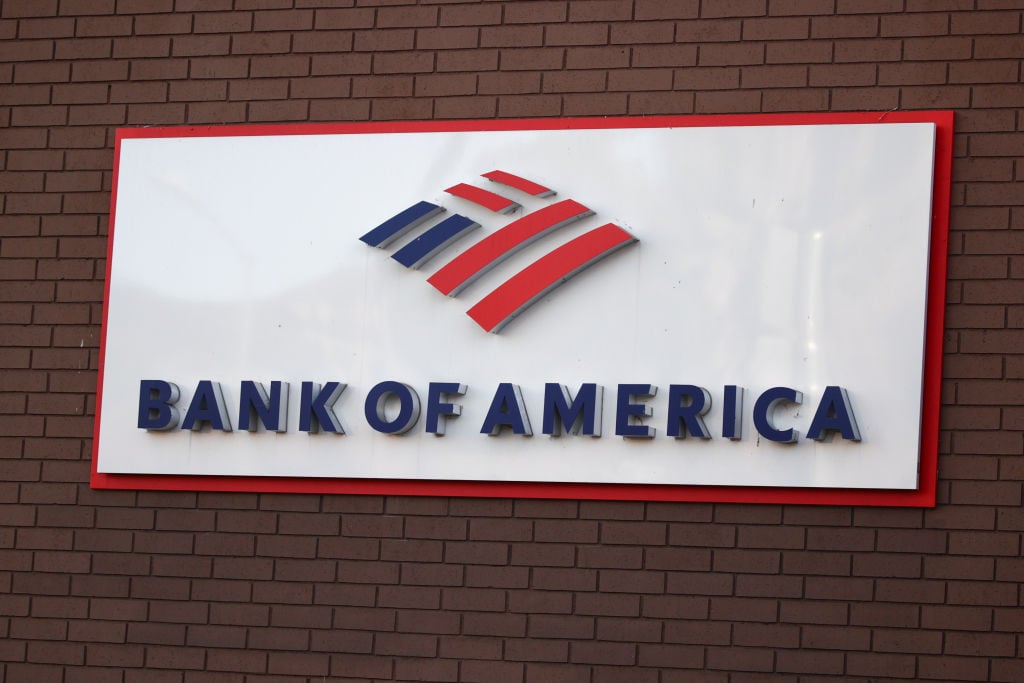Like all the big banks, Bank of America (NYSE: BAC) has received its fair share of criticism for its involvement in the foreclosure mess, dubious investment products, and all-around bad banking behavior.
Last fall, B of A tried to institute a $5 debit card fee on its customers, and the backlash was instantaneous and brutal. The bank was forced to backpedal, and CEO Brian Moynihan got snarky at an employee global town meeting shortly thereafter, opining that critics should remember all the good the bank had done before "yelling at us." Other banks committed the same blunder, but somehow it was Bank of America that took the brunt of public scorn.
Now, quiet PR rules the day
It seems that over the next few months, management decided that keeping a low profile about mistakes and missteps is a better public-relations policy than being combative. Since that troubled time, I've noticed that B of A has quieted down a bit when it comes to its less-than-stellar behavior, as well as when it finally corrects some irksome policies. Here are a few examples.
Loan modifications. Remember the big "fraudclosure" settlement earlier this year? Bank of America and fellow miscreants JP Morgan Chase (NYSE: JPM), Wells Fargo (NYSE: WFC), Citigroup (NYSE: C), and Ally Financial all signed on, agreeing to help underwater homeowners through refinancing of troubled loans and reducing principal through loan modifications.
A new report finds that as of June 30, these banks delivered more than $10 billion in help for homeowners, through loan mods, refinancing, or short sales -- except for B of A, which provided minimal relief for second-lien homeowners, and none for those with a first mortgage -- with the exception of short sales.
Interestingly, it was Bank of America that, not long after the settlement, loudly announced that it would begin sending out 200,000 letters to borrowers notifying them of their possible eligibility for the program. Did all of those borrowers throw their letters away? It doesn't seem likely. The bank has downplayed the report, commenting briefly that it continues to persevere in its efforts to help troubled mortgage holders.
Credit protection. Seemingly within days of the news that Capital One Financial (NYSE: COF) would be paying a $210 million settlement in regard to charges it misled consumers about its credit-protection products, B of A made an "independent business decision" to stop selling similar services.
Bank of America had a class action lawsuit pending in regard to this issue and decided to settle. Undoubtedly, this was the intelligent choice, since the new Consumer Financial Protection Bureau grabbed $25 million of Capital One's settlement money for itself and had vowed to go after other banks peddling the same dodgy wares. B of A decided to ignore that little item in its comments, which indicated that the bank was just cleaning house, trying to trim the fat by dumping products that don't fit in with its new plan.
Easy-to-read disclosures. After a year of being nagged by the Pew Charitable Trust and U.S. Democratic leaders, Bank of America has announced that it will deign to print shorter, more comprehendible disclosure forms for customer checking accounts. Pew gave B of A a nice pat on the back in a recent news release, praising the bank for voluntarily adopting the new format.
Pew has also been suggesting the Consumer Financial Protection Bureau make readable disclosure forms the law of the land. Pew noted that other big banks, such as Citi, JP Morgan, and Capital One, have already moved to the more understandable format.
The bank is once again in the DNC's good graces. Though not an example of bad behavior, it is notable that Bank of America was supposedly being shunned by the Democratic National Committee, to the point that the DNC was planning to pull its money out of the megabank and place it with a union-owned institution.
Very quietly, that attitude has changed. According to the Charlotte Observer, Bank of America may host up to $65 million of the Dems' money this year, although neither side is talking about it -- ostensibly because of the public's high irritation levels with big banks. B of A is also had more than a little input into convention planning, although spokespeople have acknowledged only that the bank has donated cash to the host committee.
Learning from the past?
There is no doubt that Moynihan wants the bank to survive, and his "New BAC" cost-cutting binge surely helped secure the bank's higher profit levels this past quarter. Likewise, the bank's new low-key attitude has helped to save money, too. Legal costs are reduced by settling a case it will probably lose, and the bank will also avoid penalties that might be levied if the Consumer Financial Protection Bureau trains its laser beam on B of A and whatever business practices are under scrutiny at the time.
Bank of America is making headway, even as it continues to struggle with its myriad issues. It has learned an important lesson, and is saving money -- its own, and investors' -- by putting what it's learned into practice. Maybe, someday, it will actually figure out how to avoid shifty business behavior altogether.
How would you like to know the secret of The Only Big Bank Built to Last? Take a peek at this special report to find out why heavies like Warren Buffett love this bank. The report is free.







